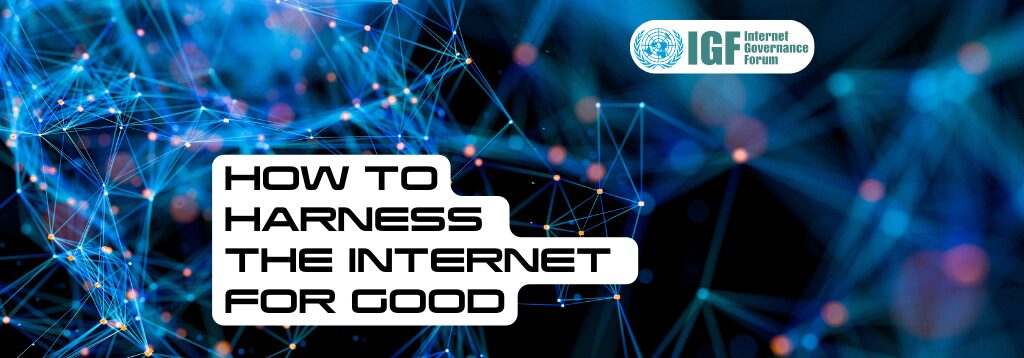How to Harness the Internet for Good
The Internet Governance Forum (IGF) is a global multistakeholder platform that convenes stakeholders to deliberate on public policy issues related to the Internet. The recent IGF gathering, which included esteemed WSA members, including WSA Chairperson Professor Peter Bruck, shed light on the pressing challenges of the digital age. In this era, public policy and governments must take critical steps to protect the Internet.
One significant topic at the recent Internet Governance Forum in Kyoto, Japan, was the Global Digital Compact for the upcoming United Nations Summit of the Future in 2024. From this forum, eight overarching issues emerged, spotlighting areas where policymakers and governments must take action.
The WSA winners play a pivotal role in addressing the challenges and opportunities presented by the digital age. They engage with the eight themes of the forum, providing innovative solutions and applications that contribute to the discussions and initiatives presented.
Here is a more detailed analysis of how WSA-winning innovations have addressed the challenges and embraced the solutions posed by digital technology across the eight themes identified at IGF:
-
- AI & Emerging Technologies:
WSA winners frequently harness AI and emerging technologies to create solutions that tackle societal challenges. Their work exemplifies responsible AI development, ethical governance, and inclusivity. By showcasing AI applications that benefit various sectors, they contribute to discussions about the responsible use of AI for a sustainable and equitable digital future. - Avoiding Internet Fragmentation:
Internet fragmentation poses a threat to global connectivity and functionality. WSA winners actively counter this threat through their cross-border and globally applicable solutions. Their projects promote international coordination, shared understanding, and multi-stakeholder cooperation, aligning with efforts to prevent Internet fragmentation. - Cybersecurity, Cybercrime, and Online Safety: WSA winners lead the charge in ensuring trust, security, and human rights on the Internet. Their solutions often address cybersecurity challenges and online safety concerns. By offering innovative approaches to safeguard online spaces, they reinforce the importance of global cooperation, legal responses, and responsible AI use to protect rights and maintain open standards.
- Data Governance and Trust:
The extensive use of data, powered by technologies, presents regulatory challenges. WSA winners contribute by showcasing data-driven solutions that respect privacy and ethical data practices. They advocate for secure cross-border data sharing, robust privacy rules, and inclusive discussions, emphasizing trust in data governance. - Digital Divides and Inclusion:
WSA winners embody the importance of inclusivity and bridging digital divides. Many of their projects focus on providing meaningful, affordable access to the Internet for marginalized communities. Their emphasis on digital literacy and addressing offline inequalities aligns with the IGF's goal of ensuring that everyone, regardless of location or background, can benefit from the digital age. - Global Digital Governance and Cooperation:
WSA winners represent a diverse global community of innovators who actively promote an inclusive and multistakeholder approach. They align with the IGF's vision for positive global digital governance, addressing sustainability, human rights, accessibility, and governance. Their work fosters cooperation and inclusivity among various stakeholders in the digital ecosystem. - Human Rights and Freedoms:
WSA winners actively contribute to the promotion of human rights and freedoms online. Their solutions often embody the principles of inclusivity, safety, and the upholding of human rights. By improving the monitoring and implementation of digital rights, they ensure that online spaces respect both civil and political rights as well as economic, social, and cultural rights. - Sustainability & Environment:
Digital technologies can both aid environmental protection and pose ecological challenges. WSA winners, through their innovative digital solutions, address sustainability and environmental issues. They promote the responsible use of technology to minimize its negative ecological footprint, aligning with global efforts to balance technological advancements with environmental conservation.
- AI & Emerging Technologies:
WSA winners are at the forefront of driving positive change across the IGF's eight thematic areas. Their innovative solutions demonstrate how technology can be harnessed for the greater good, emphasizing ethical, inclusive, and sustainable digital practices.
Find more about the World Summit Awards Global Contest
